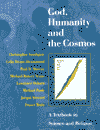The Concept of EmergenceThe complement to sciences’ natural tendency to reductionism (see an examination of reductionism) is emergence. An emergent property is one describing a
higher level of organization of matter, where the description is not
epistemologically reducible to lower-level concepts. A classic example would be that of an ecosystem. In order to understand organisms co-existing together we need this concept, and cannot reduce it out of our understandings. (Come to that, the concept ‘multi-cellular organism’ is itself emergent - simply to describe an animal as a collection of cells living together is to miss a great many properties characteristic of the way those cells co-operate.) Two notes of caution:
What actually happened in the history of
molecular biology was most interesting. A number of scientists, Crick included,
first began to consider questions of the chemistry of life because of a series
of lectures given by the physicist Erwin Schrödinger in Dublin in 1943, and
published as What is Life?
Email
link | Feedback | Contributed by: Dr.
Christopher Southgate |




